Outreach Update
Reykjavik, Iceland
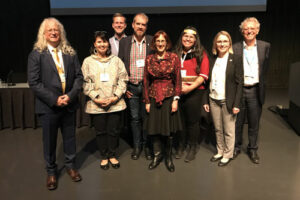
Governing Emerging Climate Technologies in the Arctic explored which emerging climate technologies researchers are considering for the region, and what their effective governance might include. Speakers included Sir David King, the former chief scientific adviser to the UK government; Jason Box, glaciologist, Geologic Survey of Denmark and Greenland; Pétur Halldórsson, Icelandic Youth Environmentalist Association chair; and Shawna Larson, Regional Director for the Native Movement based in Alaska.
Saving the Arctic: Ethics, Values and the Next Generation looked at the role ethics and values play in shaping decisions on the testing and use of potentially controversial technologies. In seeking to protect the Arctic with climate-altering technologies, are researchers opening a Pandora’s box? The panel was composed of Sir David King; Ilona Mettiainen, University of Lapland; Ashley Komangaapik Rose Cummings, Canadian Prime Minister’s Youth Council; and Maria Krabbe Hammershøy, Secretary-General of Caritas Denmark.
Beijing and Jinan, China
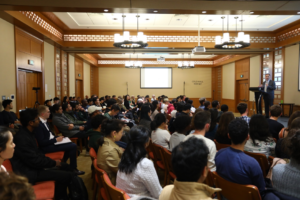
He also spoke at Tsinghua University, and held bilateral meetings with officials of the Ministry of Ecology and Environment, and with the Ministry of Natural Resources.
Geneva, Switzerland
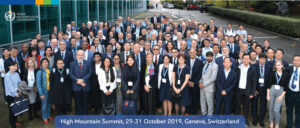
C2G briefed intergovernmental organisations, governments and research institutes on the urgent need for CDR and SRM governance, in the context of the Sustainable Development Goals, and invited feedback on how to take this discussion forward in high mountain regions. C2G also released a poster entitled “Let’s ask big questions on the governance of climate-altering technologies”.
Washington D.C., USA
On 4 November, C2G’s senior strategy director spoke at the World Bank Law, Justice and Development Week 2019 – Rights, Technology and Development, highlighting the need for large-scale CDR governance on a panel on “Technology Innovation for Climate Action: Legal and Governance Aspects”. The other panelists were: Dave Rejeski, Environmental Law Institute; William Burns, Institute for Carbon Removal Law & Policy, American University; and Erick Fernandes, World Bank.
Paris, France
In November, C2G spoke about the governance of climate-altering technologies at the 2nd Paris Peace Forum.
C2G also engaged with senior staff of the French Ministry of Ecological and Inclusive Transition, exploring roles France could play in advancing the governance of climate-altering technologies at key events in 2020, in particular the IUCN World Conservation Congress in France and the 15th Meeting of the Conference of the Parties to the Convention on Biological Diversity (COP15) in China.
Madrid, Spain
From 2-13 December, C2G attended the annual UN Climate Change Conference (COP25) in Madrid. Activities included a press conference, several side events, and significant interaction with governments and civil society.
Janos Pasztor shared his thoughts on what the outcome meant for C2G’s work in this blog, warning: “The longer the world takes to cut emissions, the more large-scale carbon dioxide removal would be needed to stay under 1.5°C. The longer the world avoids the governance challenges of massive emissions cuts and large-scale CDR, the more likely that people will consider solar radiation modification to buy time and reduce risks. And the longer the world takes to address the governance of SRM, the higher the possibility of dangerous, ungoverned deployment.”
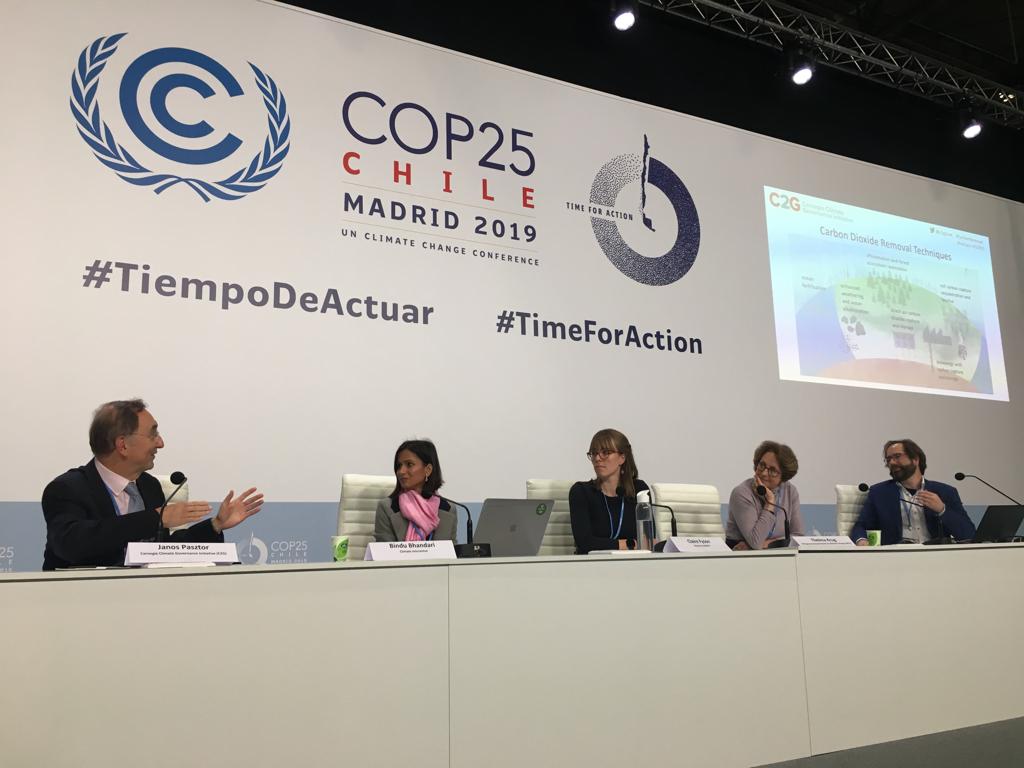
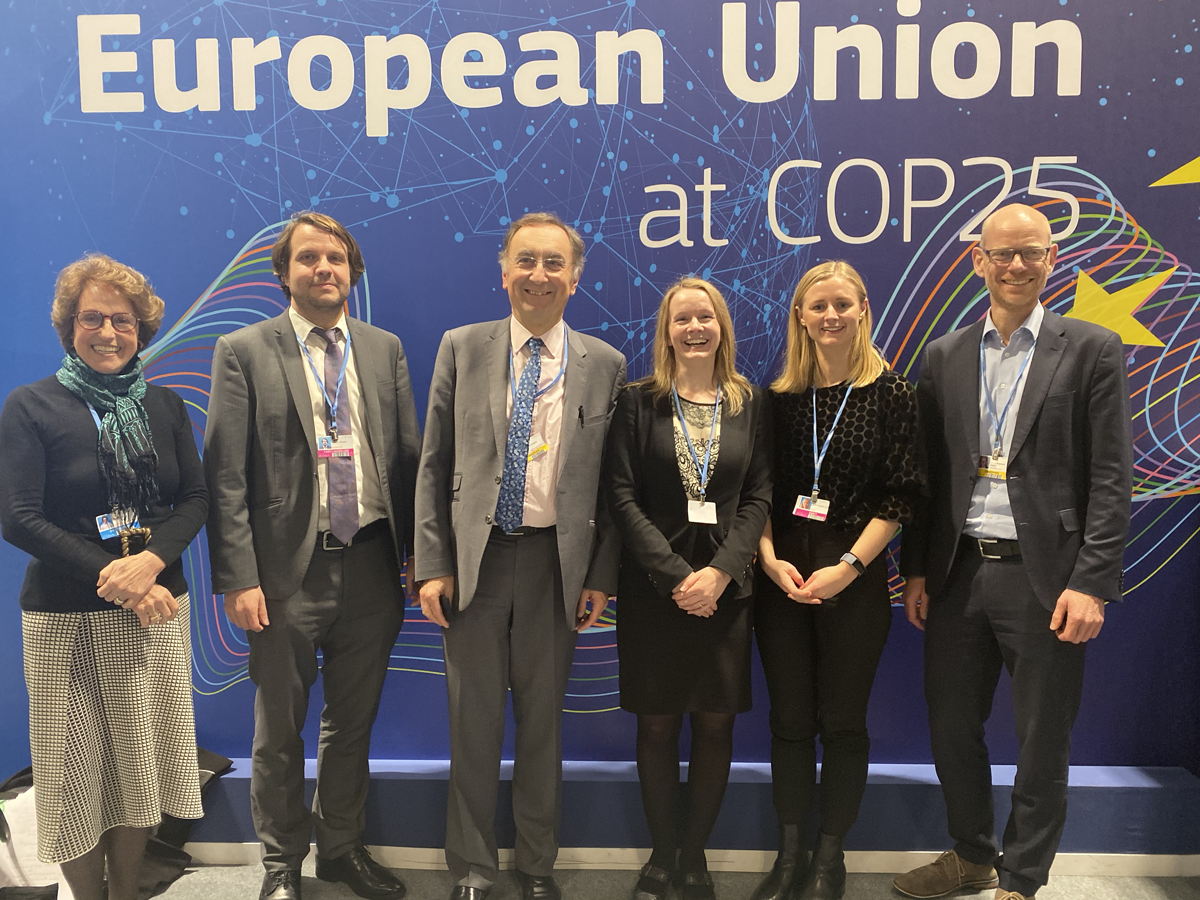
In a 4 December press conference Is the world ready for large-scale removal? C2G drew attention to the challenge of governing CDR at scale. Speakers included Thelma Krug, Vice-Chair of the Intergovernmental Panel on Climate Change (IPCC); Claire Fyson, Research Analyst at Climate Analytics and co-author of the report Governing Large-scale Carbon Dioxide Removal: Are We Ready?; Bindu Bhandari, Youth Campaigner and En-ROADS diffusion team member at Climate Interactive; and C2G Executive Director, Janos Pasztor.
On 7 December, C2G brought together a broad range of government and intergovernmental officials and civil society leaders in an official UNFCCC COP25 side event on Governing emerging marine climate-altering techniques. Speakers included Thelma Krug from the IPCC; Safri Burhanuddin, Government of Indonesia; Stefanos Fotiou, UN Economic and Social Commission for Asia and the Pacific (UNESCAP); Mithika Mwenda, Pan African Climate Justice Alliance; Dorothée Herr, International Union for Conservation of Nature (IUCN); Stephan Singer, Climate Action Network International and Arunabha Ghosh, Council on Energy, Environment and Water.
On 11 December C2G co-convened a side event on Pathways to a sustainable future: governance of CO2 removal & mitigation strategies for industry at the EU Pavilion, together with CO2GeoNet and ImplementaSur. This event offered insights into potential market and policy mechanisms for scaling up greenhouse gas mitigation strategies and carbon dioxide removal to support sustainable growth. Moderated by CO2GeoNet President Ceri Vincent and C2G’s Janos Pasztor, the panelists included: Nicolás Westenenk, Chilean Government; Thelma Krug, IPCC; Georg Caspary, ImplementaSur; Sofie Fogstad Vold, the Norwegian Ministry of Petroleum and Energy; and Niklas Höhne, New Climate Institute.
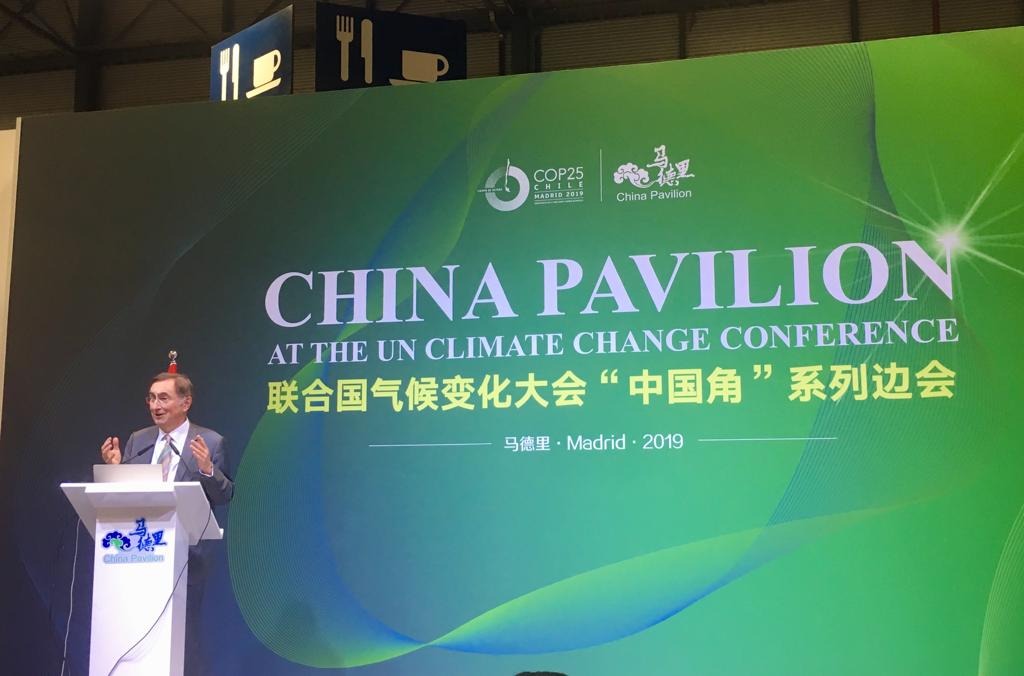
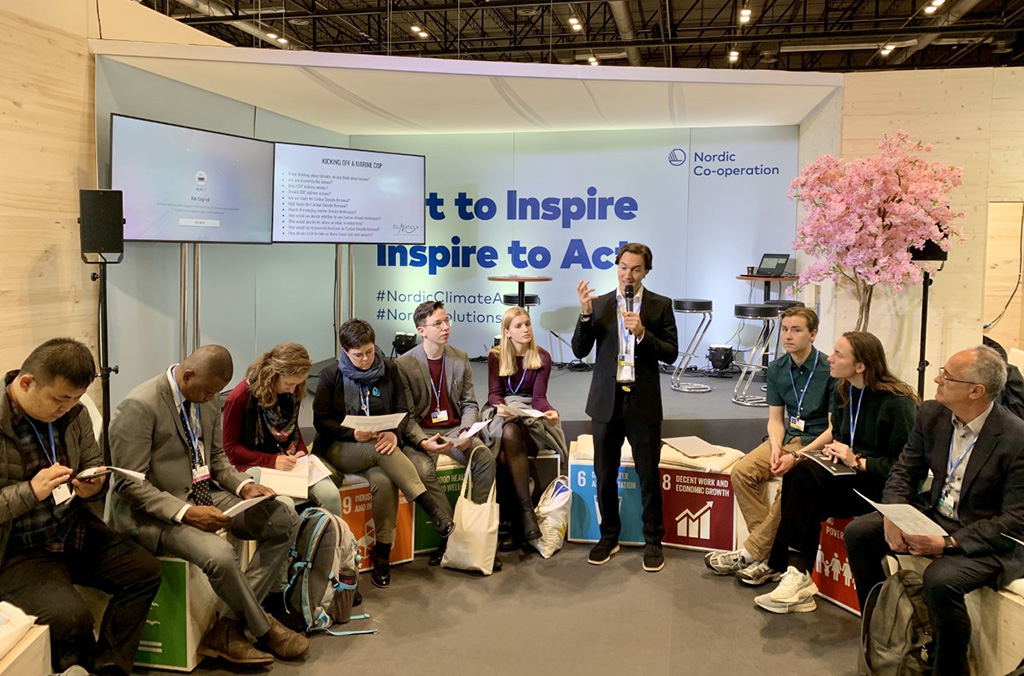
C2G also participated in side events focusing on youth involvement in governing marine carbon dioxide removal, negative emissions, nature-based solutions, creating a commercial market for greenhouse gas removal technologies, and accelerating climate action in China’s cities.